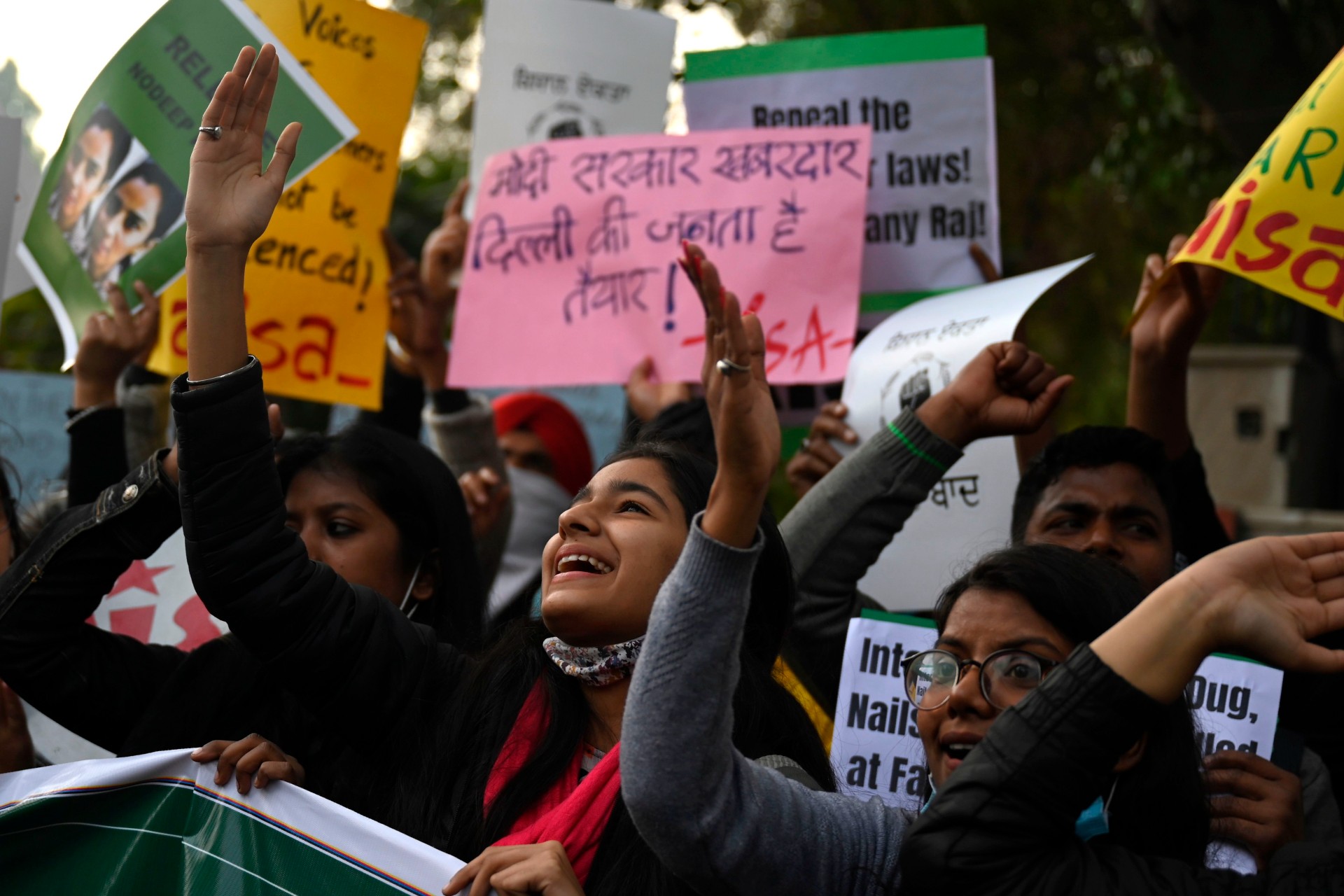What is happening in India? Everything you need to know about the farmers' protests
Indian farmers have been protesting against new agriculture laws for months. Here's the important reason why...


Over the last six months, thousands of farmers in India have been protesting in the capital of New Delhi, demanding the repeal of three new agriculture laws that could threaten their livelihoods in order to serve corporate interests.
Despite little mainstream media coverage outside India, the exhausting protests first gained the attention of social media activists in November 2020. We have since seen many Twitter and Instagram users, including celebrities and influencers, raising awareness of the issue and sharing disturbing videos and images from the protests—particularly highlighting the Indian government's dangerous treatment of protesters, allegedly violating human rights laws.
Here's a breakdown of exactly what has been happening and what you can do to help...
A post shared by Meena Harris (@meena)
A photo posted by on
Why are Indian farmers protesting?
In August 2020, Indian Prime Minister Narendra Modi introduced three new bills that would minimize the government’s role in agriculture and open more space for private investors: in other words, allowing powerful corporations to hold ownership over India's agriculture. The bills, which were eventually passed in September 2020, are part of Modi's plan to reshape farming in India. The government claims that this will provide more opportunities for India's agricultural industry but local farmers don't agree. Why?
Well, very validly, they believe that without the protection of the state (which they already consider to be insufficient), they'll be left under the control of money hungry corporations that would hold autonomy over their fate.
Prior to the new laws, government support for farmers included guaranteed minimum prices for certain essential crops. Without this, many fear that they will be forced to sell their land and lose their livelihoods. More than 60% of India's population (which is currently at 1.3 billion people) rely solely on agriculture for their income and survival despite the sector only accounting for 15% of the country's economic output, according to The New York Times. This has led to a history of serious financial struggles among Indian farmers and the coronavirus pandemic has put a horrifying strain on their situation, resulting in devastatingly high rates of suicide.
The current situation in India has raised wider questions about the global issue surrounding workers' rights and labor regulations, especially after the protests in New Delhi became violent.
How did the peaceful protests turn violent?
Thousands of farmers and agriculture unions, many who are members of the Sikh minority and come from the states of Punjab, Haryana and Uttar Pradesh, have been protesting peacefully for months whilst others in different villages have held local protests in solidarity. However, after marching into New Delhi, protesters were met with police resistance.
On Tuesday, the protesters —many of whom left their homes months ago—rallied the streets of the capital during a holiday celebration including a military parade for Prime Minister Modi. Many were on tractors and some carried weapons, while others held flags and banners condemning the government. It didn't take long before the place was full of police officers with assault rifles and tear gas was swirling around the crowd. Video footage on social media has shown police beating people with batons to push them back. According to the BBC, one protestor died, with local TV showing fellow farmers placing the body in the middle of the road. Meanwhile, 300 police officers were injured during the incident and more than 200 protestors were subsequently detained alongside eight working journalists, reports Human Rights Watch.
Can you actually do anything to help?
Yes, you can. The Indian government has temporarily suspended internet services in parts of the country where protests have been ongoing. This has prevented people from sharing live footage and raising awareness of what is happening on the ground. As a result, many activists and celebrities have been using their global platforms to share the news with their following and you can do the same.
why aren’t we talking about this?! #FarmersProtest https://t.co/obmIlXhK9SFebruary 2, 2021
Rihanna speaks out for India's farmers
On February 2, Rihanna shared a link to an article explaining the Indian farmers' protests on Twitter and Instagram, with the caption: "Why aren't we talking about this? #FarmersProtests."
Others including Greta Thunberg and American lawyer and author Meena Harris have also raised awareness, using the hashtag #FarmersProtests.
We stand in solidarity with the #FarmersProtest in India. https://t.co/tqvR0oHgo0February 2, 2021
Thunberg also shared a toolkit with her followers, explaining the different ways we can all help the farmers protesting in India. This includes sharing information and footage on social media with the hashtags #StandWithFarmers and #AskIndiaWhy, signing petitions and contacting local representatives if you can.
Sagal is a journalist, specialising in lifestyle, pop culture, fashion and beauty. She has written for a number of publications including Vogue, Glamour, Stylist, Evening Standard, Bustle, You Magazine, Dazed and Wonderland to name a few.
